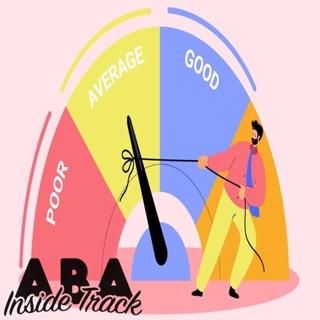
Episode 273 - Schedule Thinning and FCR
FCR is amazing and all, but what can be done about the that dense schedule of reinforcement? This week we explore what the research has to say about thinning that schedule using good old discrimination cues and a boatload of gumption. Well, mostly the first part. Plus, a fabulous recent summary of everything you wanted to know about the topic courtesy of Kranak and Brown. Think of us as the audiobook version of their recent article. This episode is available for 1.0 LEARNING CEU. Articles discussed this episode: Hanley, G.P., Iwata, B.A., & Thompson, R.H. (2001). Reinforcement schedule thinning following treatment with functional communication training. Journal of Applied Behavior Analysis, 34, 17-38. doi: 10.1901/jaba.2001.34-17 Betz, A.M., Fisher, W.W., Roane, H.S., Mintz, J.C., & Owen, T.M. (2013). A component analysis of schedule thinning during functional communication training. Journal of Applied Behavior Analysis, 46, 219-241. doi: 10.1002/jaba.23 Greer, B.D., Fisher, W.W., Saini, V., Owen, T.M., & Jones, J.K. (2016). Functional communication training during reinforcement schedule thinning: An analysis of 25 applications. Journal of Applied Behavior Analysis, 49, 105-121. doi: 10.1002/jaba.265 Kranak, M.P. & Brown, K.R. (2023). Updated recommendations for reinforcement schedule thinning following functional communication training. Behavior Analysis in Practice, 17, 87-106. doi: 10.1007/s40617-023-00863-4 If you're interested in ordering CEs for listening to this episode, click here to go to the store page. You'll need to enter your name, BCBA #, and the two episode secret code words to complete the purchase. Email us at abainsidetrack@gmail.com for further assistance.
17 Apr 20241h 4min

Episode 272 - Supervision in Health, Sports, and Fitness w/ Dr. Mallory Quinn
This week we welcome Dr. Mallory Quinn back to the show to provide us her expertise in the health, sports, and fitness field. And when we realize we won't get cast in "West Side Story" with only an hour of work, we decide to spend our time talking with her about supervision instead. We review what behavior analysts interested in HSF should know whether they're starting their journey into this speciality or getting ready to teach others to practice. And while we run out of time to become prima ballerinas, Dr. Quinn shares a manual on the subject that might help us out. This episode is available for 1.0 SUPERVISION CEU. Articles discussed this episode: Quinn, M., Blair, K.C., Novotny, M., & Deshmukh, S. (2022). Pilot study of manualized behavioral coaching program to improve dance performance. Journal of Applied Behavior Analysis, 55, 180-194. doi: 10.1002/jaba.874 Holland, M.A., & Slowiak, J.M. (2021). Practice and ethical considerations for behavior analysts in health, sport, and fitness. Behavior Analysis: Research and Practice, 21, 314-325. doi: 10.1037/bar0000188 Simmons, C.A., Ford, K.R., Salvatore, G.L, & Moretti, A.E. (2021). Acceptability and feasibility of virtual behavior analysis supervision. Behavior Analysis in Practice, 14, 927-943. doi: 10.1007/s40617-021-00622-3 If you're interested in ordering CEs for listening to this episode, click here to go to the store page. You'll need to enter your name, BCBA #, and the two episode secret code words to complete the purchase. Email us at abainsidetrack@gmail.com for further assistance.
10 Apr 20241h 22min

April 2024 Preview
Now that lousy March weather is over, it's time for cool April and another bunch of podcast episodes on topics that smell as sweet as Spring flowers. First we welcome back Dr. Mallory Quinn to share strategies for meaningful supervision in the realm of health, sports, and fitness. Then we run the gamut on old and "hot-off-the-press" topics with a review of schedule thinning and how to get involved in public policy. Because if you don't, who will? Plus, for patrons, our Spring 2024 Book Club will take you right from the page to your practice in using picture activity schedules. Articles for April 2024 Supervision in Health, Sports, and Fitness w/ Dr. Mallory Quinn (SUPERVISION) Quinn, M., Blair, K.C., Novotny, M., & Deshmukh, S. (2022). Pilot study of manualized behavioral coaching program to improve dance performance. Journal of Applied Behavior Analysis, 55, 180-194. doi: 10.1002/jaba.874 Holland, M.A., & Slowiak, J.M. (2021). Practice and ethical considerations for behavior analysts in health, sport, and fitness. Behavior Analysis: Research and Practice, 21, 314-325. doi: 10.1037/bar0000188 Simmons, C.A., Ford, K.R., Salvatore, G.L, & Moretti, A.E. (2021). Acceptability and feasibility of virtual behavior analysis supervision. Behavior Analysis in Practice, 14, 927-943. doi: 10.1007/s40617-021-00622-3 Schedule Thinning and FCR Hanley, G.P., Iwata, B.A., & Thompson, R.H. (2001). Reinforcement schedule thinning following treatment with functional communication training. Journal of Applied Behavior Analysis, 34, 17-38. doi: 10.1901/jaba.2001.34-17 Betz, A.M., Fisher, W.W., Roane, H.S., Mintz, J.C., & Owen, T.M. (2013). A component analysis of schedule thinning during functional communication training. Journal of Applied Behavior Analysis, 46, 219-241. doi: 10.1002/jaba.23 Greer, B.D., Fisher, W.W., Saini, V., Owen, T.M., & Jones, J.K. (2016). Functional communication training during reinforcement schedule thinning: An analysis of 25 applications. Journal of Applied Behavior Analysis, 49, 105-121. doi: 10.1002/jaba.265 Kranak, M.P. & Brown, K.R. (2023). Updated recommendations for reinforcement schedule thinning following functional communication training. Behavior Analysis in Practice, 17, 87-106. doi: 10.1007/s40617-023-00863-4 ABA and Public Policy Coop, B., Ice, E.D., Tomei, A., & Powell, R.U. (2023). Why public policy matters: A call to action for the everyday behavior analyst. Behavior Analysis in Practice. doi: 10.1007/s40617-023-00878-x Evanko, C.D., Moss-Lourenco, T., Kramer, R., & Napolitano, D.A. (2024). Why we all need to shape the profession of behavior analysis through advocacy and how to get started. Behavior Analysis in Practice. doi: 10.1007/s40617-023-00895-w Scibak, J.W. (2023). An analysis of voting and legislative behavior. Behavior Analysis in Practice. doi: 10.1007/s40617-023-00875-0 Thompson, R.L., Belokas, J., Johnson, K., & Williams, A.L. (2023). The public policy advocacy actions checklist: Success stories from three states. Behavior Analysis in Practice. doi: 10.1007/s40617-023-00874-1 Activity Schedules for Children with Autism Book Club (PATRONS ONLY) McClannahan, L.E. & Krantz, P.J. (1999). Activity schedules for children with autism: Teaching independent behavior. Woodbine House. McClannahan, L.E. & Krantz, P.J. (2010). Activity schedules for children with autism: Teaching independent behavior. (2nd ed.). Woodbine House.
3 Apr 202425min

Episode 271 - Social Justice Research Practices w/ Dr. Malika Pritchett
While behavior analysis has more recently begun digging into what meaningful social justice practices can and should be, the concept certainly isn't new to other fields, and our special guest, Dr. Malika Pritchett, has the data to prove it. This week, Dr. Pritchett gives us a whirlwind tour of the development of social justice practices in research through the years to highlight science's highly problematic journey to improve its understanding and appreciation of the rights of all (and to focus on what we can all do to keep this journey moving towards an equitable future). This episode is available for 1.0 LEARNING CEU. Articles discussed this episode: Pritchett, M., Ala'i-Rosales, S., Cihon, T.M., & Cruz, A.R. (2022). From Fuller to Fawcett: a Human rights history of research ethics in behavior analysis. In Cox, D.J., Syde, N., Brodhead, M.T., & Quigley, S.P. (Eds.), Research ethics in behavior analysis: From laboratory to clinic and classroom (pp. 1-34). Academic Press. doi: 10.1016/B978-0-323-90969-3.00011-6 Pritchett, M., Ala'i-Rosales, S., Cruz, A.R., & Cihon, T.M. (2022). Social justice is the spirit and aim of an applied science of human behavior: Moving from colonial to participatory research practices. Behavior Analysis in Practice, 15, 1074-1092. doi: 10.1007/s40617-021-00591-7 Kaerwer, K. & Pritchett, M. (2023). Critical race theory in education: How banning its tenets undermines our best hope for equity in education. Behavior and Social Issues, 32, 300-313. doi: 10.1007/s42822-023-00130-9 If you're interested in ordering CEs for listening to this episode, click here to go to the store page. You'll need to enter your name, BCBA #, and the two episode secret code words to complete the purchase. Email us at abainsidetrack@gmail.com for further assistance.
27 Mars 20241h 30min

Episode 270 - Assessing Social Validity
If measuring social validity is just about getting clients and stakeholders to fill out a 7-point Likert scale, we'd have a pretty short episode this week. Fortunately, it's a heck of a lot more important and effortful than that. This week we delve into the realm of using social validity measures to improve our practices and to better support our clients. So buckle-up for some thematic reviews of interviews, big picture practice examinations, and comparisons to how much better or worse things are since the 90s. At least, in relation to social validity measurement. This episode is available for 1.0 LEARNING CEU. Articles discussed this episode: Schwartz, I.S. & Baer, D. (1991). Social validity assessments: Is current practice state of the art? Journal of Applied Behavior Analysis, 24, 189-204. doi: 10.1901/jaba.1991.24-189 Ferguson, J.L., Cihon, J.H., Leaf, J.B., Van Meter, S.M., McEachin, J., & Leaf, R. (2018). Assessment of social validity trends in the journal of applied behavior analysis. European Journal of Behavior Analysis, 20, 146-157. doi: 10.1080/15021149.2018.1534771 Callahan, K., Hughes, H.L., Mehta, S., Toussaint, K.A., Nichols, S.M., Ma, P.S., Kutlu, M., Wang, H. (2017). Social validity of evidence-based practices and emerging interventions in autism. Focus on Autism and Other Developmental Disabilities, 32, 18-197. doi: 10.1177/1088357616632446 Anderson, R., Taylor, S., Tayler, T. & Virues-Ortega, J. (2022). Thematic and textual analysis methods for developing social validity questionnaires in applied behavior analysis. Behavioral Interventions, 37, 732-753. doi: 10.1002/bin.1832 If you're interested in ordering CEs for listening to this episode, click here to go to the store page. You'll need to enter your name, BCBA #, and the two episode secret code words to complete the purchase. Email us at abainsidetrack@gmail.com for further assistance.
20 Mars 20241h 17min

Episode 1008 - (UNLOCKED) Between Now and Dreams Book Club
UNLOCKED from our Patreon page, it's the "Between Now and Dreams" Book Club! Interested in more Book Clubs? Want to vote on what we read next? Feeling FOMO at getting this a full year late? Wish your 2 CEs for listening to the episode were FREE??? Join us on Patreon to get all of our episodes a week early, access to these bonus episodes, plus other goodies. We're curling up with a good book this winter for our latest Book Club. And since the winter is a good time for reflection, we're thinking about what it means to be a parent and a supporter of parents of autistic children by reading "Between Now and Dreams" from Dr. Ala'i-Rosales and Peggy Heinkel-Wolfe. Whether you serve one or both of the above roles, we dive deep into the advice of the authors to learn, connect, and love in this very non-checklist overview of being the best caregiver you can be. Plus, book club discussion questions directly from the authors…answered by us! Enjoy our discussion of the book? How about a discussion with the authors? Content discussed in this episode Ala'i-Rosales, S. & Heinkel-Wolfe, P. (2022). Reponsible and responsive parenting in autism: Between now and dreams. Different Roads to Learning. Ala'i-Rosales, S. & Heinkel-Wolfe, P. (n.d.). Resource Page. Responsible and Responsive Parenting in Autism: Between Now and Dreams. https://peggyheinkelwolfe.com/ways-to-buy-responsible-and-responsive-parenting-between-now-and-dreams/clinicians-book-club/ This episode is available for 2.0 LEARNING CEUs. If you're interested in ordering CEs for listening to this episode, click here to go to the store page. You'll need to enter your name, BCBA #, and the two episode secret code words to complete the purchase. Email us at abainsidetrack@gmail.com for further assistance.Want these CEs for FREE? Just subscribe to our Patreon at the $10+ levels and go to the original post for a discount code.
13 Mars 20241h 56min

March 2024 Preview
This month is all about caring: caring for clients, for parents, for children, and for other people's opinions. Because while we all love behavior analysis, that doesn't mean everybody does. So listen in and up your anti-colonial, family-supportive, socially valid practices with our unlocked Book Club on supporting parents of autistic children with "Between Now and Dreams", our interview with Dr. Malika Pritchett on social justice in our research practices, and a review of how we can better assess social validity of treatment. Articles for March 2024 (UNLOCKED) Between Now and Dreams Book Club Ala'i-Rosales, S. & Heinkel-Wolfe, P. (2022). Reponsible and responsive parenting in autism: Between now and dreams. Different Roads to Learning. Ala'i-Rosales, S. & Heinkel-Wolfe, P. (n.d.). Resource Page. Responsible and Responsive Parenting in Autism: Between Now and Dreams. https://peggyheinkelwolfe.com/ways-to-buy-responsible-and-responsive-parenting-between-now-and-dreams/clinicians-book-club/ Assessing Social Validity Schwartz, I.S. & Baer, D. (1991). Social validity assessments: Is current practice state of the art? Journal of Applied Behavior Analysis, 24, 189-204. doi: 10.1901/jaba.1991.24-189 Ferguson, J.L., Cihon, J.H., Leaf, J.B., Van Meter, S.M., McEachin, J., & Leaf, R. (2018). Assessment of social validity trends in the journal of applied behavior analysis. European Journal of Behavior Analysis, 20, 146-157. doi: 10.1080/15021149.2018.1534771 Callahan, K., Hughes, H.L., Mehta, S., Toussaint, K.A., Nichols, S.M., Ma, P.S., Kutlu, M., Wang, H. (2017). Social validity of evidence-based practices and emerging interventions in autism. Focus on Autism and Other Developmental Disabilities, 32, 18-197. doi: 10.1177/1088357616632446 Anderson, R., Taylor, S., Tayler, T. & Virues-Ortega, J. (2022). Thematic and textual analysis methods for developing social validity questionnaires in applied behavior analysis. Behavioral Interventions, 37, 732-753. doi: 10.1002/bin.1832 Social Justice Research Practices w/ Dr. Malika Pritchett Pritchett, M., Ala'i-Rosales, S., Cihon, T.M., & Cruz, A.R. (2022). From Fuller to Fawcett: a Human rights history of research ethics in behavior analysis. In Cox, D.J., Syde, N., Brodhead, M.T., & Quigley, S.P. (Eds.), Research ethics in behavior analysis: From laboratory to clinic and classroom (pp. 1-34). Academic Press. doi: 10.1016/B978-0-323-90969-3.00011-6 Pritchett, M., Ala'i-Rosales, S., Cruz, A.R., & Cihon, T.M. (2022). Social justice is the spirit and aim of an applied science of human behavior: Moving from colonial to participatory research practices. Behavior Analysis in Practice, 15, 1074-1092. doi: 10.1007/s40617-021-00591-7 Kaerwer, K. & Pritchett, M. (2023). Critical race theory in education: How banning its tenets undermines our best hope for equity in education. Behavior and Social Issues, 32, 300-313. doi: 10.1007/s42822-023-00130-9
6 Mars 202426min

Episode 269 - Systemic and Sustainable Changes Toward Equity w. Dr. Noor Syed
UPDATED: Following the release of the episode, we were all saddened to hear of the passing of Dr. Elizabeth HughesFong, a pioneer in researching, publishing, and speaking on cultural humility in the field of behavior analysis. To celebrate and to honor her accomplishments, Dr. Noor Syed asked to record a special dedication for Dr. Hughes Fong to add to this episode. I can't think of a better way to celebrate Rob's birthday than to be joined by special guest Dr. Noor Syed to discuss creating equitable practices. Well, what if those practices also were built in ways that led to sustainable, society-wide, paradigm-breaking, world disrupting changes? Dr. Syed might tell us to focus on taking one step at a time towards equity with some amazing action steps. So, listen to this episode, and we'll start there. And, as a birthday gift for our listeners, an extra long show means extra CEs! This episode is available for 1.5 LEARNING CEUs. Articles discussed this episode: Glenn, S.S., Malott, M.E., Andery, M.A.P.A., Benvenuti, M., Houmanfar, R.A., Sandaker, I., Todorov, J.C., Tourinho, E.Z., & AbreVasconcelos, L. (2016). Toward consistent terminology in a behaviorist approach to cultural analysis. Behavior and Social Issues, 25, 11-27. doi: 10.5210/bsi.v.25i0.6634 Syed, N.Y., Mellon, L., & Kristiansen, S. (2023). Equity, diversity, inclusion, and accessibility in research. In D.J. Cox, N.Y., Syed, M.T. Brodhead, & S.P. Quigley (Eds.) Research ethics in behavior analysis: From laboratory to clinic and classroom (pp. 63-86). Academic Press. doi: 10.1016/B978-0-323-90969-3.00012-8 Hilton, J., Syed, N., Weiss, M.J., Tereshko, L. Marya, V., Marshall, K., Gatzunis, K., Russeel, C., & Driscoll, N. (2021). Initiatives to address, diversity, equity, and inclusion within a higher education ABA department. Behavior and Social Issues, 30, 58-81. doi: 10/1007/s42822-021-00082-y If you're interested in ordering CEs for listening to this episode, ,click here to go to the store page. You'll need to enter your name, BCBA #, and the two episode secret code words to complete the purchase. Email us at abainsidetrack@gmail.com for further assistance.
28 Feb 20241h 39min






















